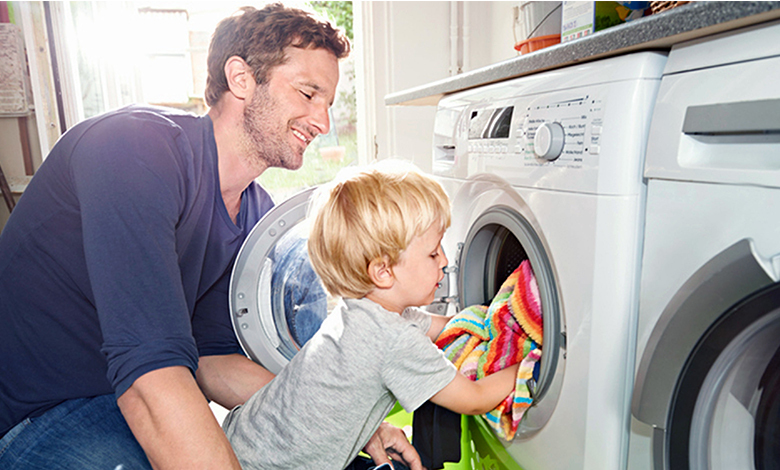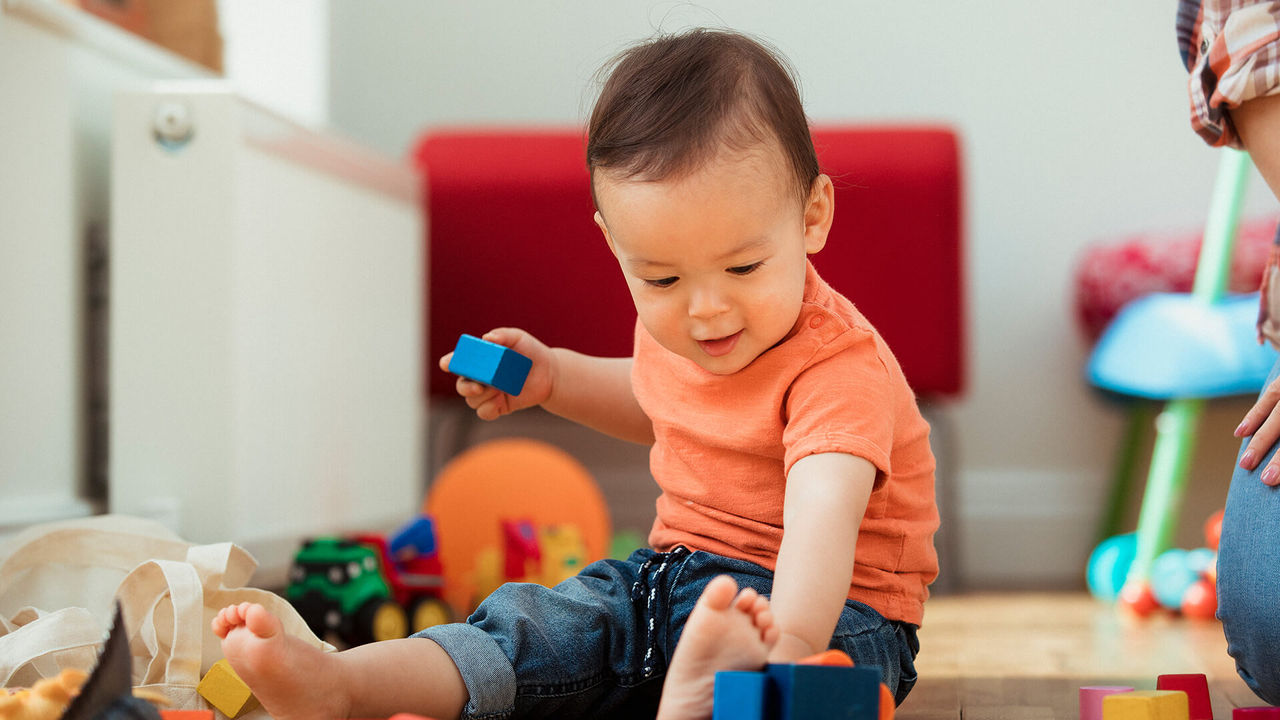Over the last 2 decades, children have lost 8 hours of free play time per week. A UK National Trust Survey also found that children are spending half as much time playing outdoors as their parents when they were children. Both findings are largely due to an increase in academic pursuits and technology use, which have also been identified as factors contributing to the growing trend of sedentary lifestyles among children. Playtime without a screen was once a given in childhood, but now it is something that requires a bit more planning to ensure it happens.
Proven to advance everything from children’s language skills and creativity to their emotional and physical growth, there’s a well-voiced connection between play and endless cognitive functions. Experts recommend children need a minimum of 3 hours of daily unstructured play. So how – and why – is it smarter to incorporate more play into your child’s day-to-day activity?
1. Teach trust with peek-a-boo
A classic introduction to play, peek-a-boo epitomises the repetition that little ones love (cue hours upon hours of the game). And it’s a great way to start encouraging ‘safe’ separation at an age when separation anxiety often kicks in. The momentary disappearance and almost immediate happy reunion of parent and child helps little ones to build both trust and a solid attachment. And it helps prep them for longer stints of separation in the future.
After children turn 1, they tend to wise up to this once mysterious game. Namely thanks to the development of object permanence – an understanding that objects still exist even if they can’t see, hear or touch them.
But this doesn’t mean the fun has to stop, it’s just time to add another element of surprise, like having one face disappear behind the towel and somebody different reappear.
2. Build motor skills with finger puppets
Hand-eye coordination. Empathy. Motor skills. Collaboration. Conflict resolution. Memory. Language skills. Is there nothing a game of finger puppets can’t help with?! Well, incorporate sound and you can add nerve growth into the mix, too. In fact, research indicates that the cerebellum, which plays an important role in motor control and cognitive functions, is 5% larger in musicians. So, step up those tunes ASAP.
The likelihood with slightly more complex games like these, is you’ll have to lead. Play is a skill, so, for children who haven’t quite mastered it yet, start out by creating finger puppet scenarios your child can relate to. Use characters they’re familiar with to increase engagement and understanding, before progressing onto more imaginative narratives.
3. Strengthen muscles – and their brain – with clay play
Play dough is tactile by design and loads of fun by proxy – both for little kids and big ones, too. From a physical perspective, rolling, shaping and manipulating the dough helps children to strengthen muscles in their fingers and hands, as well as developing the kind of intricate motor skills they’ll need to hold a pencil or tie their shoelaces in the future.
But clay play’s cognitive benefits are where it really comes into its own, in particular in relation to executive function i.e. a person’s ability to get things done. The development of our executive function depends on 3 key types of brain function:
- Working memory – the ability to retain information
- Inhibitory control – the ability to set priorities and refrain from acting on every impulse
- Cognitive flexibility – the ability to adjust plans as a situation unfolds
And clay play ticks all the boxes, allowing children to explore these skills – quite literally – first-hand.No play dough? No problem. Kids can get the same cognitive kick out of making mud pies in the back garden or wet sandcastles on the beach.
4. Empower them by hiding the toys
Emotional and social development is the name of the game with ‘hide the toys’. Essentially a game of hide and seek (this time with stuffed animals), searching for the hidden items teaches young children patience, resilience and (depending on their temperament) sometimes a little tantrum management, too.
Putting little ones in a ‘hiding’ role also empowers them to take charge and explore their own sense of independence. Being gently guided, rather than directly instructed, by adults, gives kids the chance to build on their self-confidence and leadership qualities by pursuing their own ideas.
5. Encourage exploration with “real activities”
According to research, an inquisitive mind is more likely to develop critical thinking skills, while outdoor play encourages all sorts of learning outcomes – even mathematical problem solving.
And what better place to flex that curiosity than the great outdoors? Because nature’s playground is full of brand new sensory experiences, simple things like scrunching up dried leaves, stamping through mud or feeling unusual textures like tree bark, open kids up to the idea of dipping their toe in the unknown.
They’re great activities because they require children to think deeply about how to approach unfamiliar situations.





